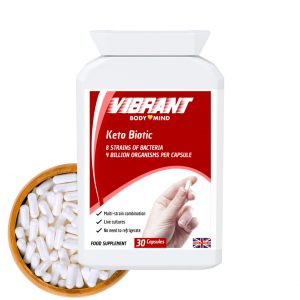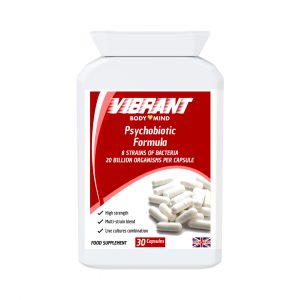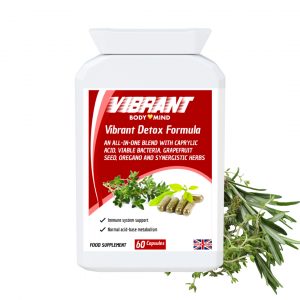Anyone who suffers from acne and skin blemishes often also has intestinal problems. Studies show that constipation, heartburn and flatulence are the main causes. In scientific studies, typical disorders of the intestinal flora associated with acne have also been demonstrated. Building up the intestinal flora with probiotics and prebiotic fibers probably represents a new therapeutic approach for acne.
Probiotics (from the Greek word “pro-bios”, meaning “for life”) are also known as live lactic acid bacteria and, according to the official definition of the World Health Organization, “have a health benefit for the host if they are present in be administered in sufficient quantity”.
Acne sufferers often have intestinal problems
When it comes to the connection between intestinal flora and acne, various studies have come to similar conclusions: Acne patients complain particularly frequently about constipation. Every second person suffers from this.
Constipation almost always lacks important lactic acid and bifidobacteria. In acne patients with constipation, the intestinal barrier is often more permeable, which activates the immune system and promotes skin inflammation.
RELATED: Does Fish Oil Help Acne?
Disrupted core microbiome in acne patients
The microbiome differs significantly from person to person and the individual composition of the intestinal flora is as unique as our fingerprint. Nevertheless, scientists have now been able to prove that all healthy people have a very similar “core microbiome”.
This means that despite different lifestyles, part of the intestinal flora remains relatively constant in healthy people. Changes in this basic microbiome are often the origin of diseases and problems. This central part of the intestinal flora also seems to be disturbed in acne.
Gut flora in acne patients
In a study by Deng et al. acne patients typically had a lower diversity of the intestinal flora and a shifted ratio of the bacterial strains Bacteroidetes and Firmicutes.
Other studies have also found deficiencies in lactic acid bacteria (lactobacillus), bifidobacteria, coprobacillus and other important gut bacteria in acne patients compared to healthy controls.
Lactobacilli and bifidobacteria in particular are important for a healthy intestinal flora, as they strengthen the intestinal barrier by reducing the permeability of the intestine and can thus prevent inflammatory processes – also on the skin.
Acne therapy and intestinal flora
What do the classic acne therapies do with the intestinal flora? Scientists have also worked on this. Antibiotics such as doxycycline appear to lead to long-term changes in the gut microbiome. Isotretinoin, on the other hand, had no significant effect on the intestinal flora – neither in a positive nor in a negative sense.
By administering probiotic bacterial strains, alone or in combination with classic acne therapies, the treatment time until the skin blemishes disappeared could be significantly reduced.
Even the combination of probiotics with antibiotics commonly used in acne led to a significantly faster and stronger improvement in acne than antibiotics alone. At the same time, antibiotic therapy was better tolerated.
Stress causes acne blemishes to sprout and damages the intestinal flora
The connection between acne and disturbances in the intestinal flora can originate in the brain. This hypothesis is supported by the stress-related aggravation of acne. Both animal experiments and studies on humans have shown that stress impairs the normal intestinal flora, in particular by decimating the number of Lactobacillus and Bifidobacterium species.
Psychological stressors cause gut microbes to produce neurotransmitters such as acetylcholine, serotonin, or norepinephrine, which enter the bloodstream through the gut lining. Stress hormones can cause the sebaceous glands to produce more sebum and increase inflammatory responses throughout the body.
RELATED: 7 Best Probiotic Products UK
Probiotic acne therapy
The realization that most acne patients also have a disturbance in the intestinal flora opens up a whole range of new therapeutic approaches. Both prebiotics and probiotics are able to reduce the levels of pro-inflammatory substances and markers of oxidative stress in the blood and skin, thereby significantly improving acne in the long term.
Various probiotic germs were found in studies to be particularly effective and allow pimples and blackheads to subside more quickly. In particular, the lactic acid bacteria Lactobacillus casei, Lactobacillus rhamnosus, Lactococcus lactis and Lactobacillus plantarum as well as Bifidobacterium lactis and Bifidobacterium bifidum have proven to be particularly effective in acne therapy.
Probiotics for acne in detail
Lactobacillus rhamnosus SP 1: Acne is a common skin condition that is associated with chronic inflammation and causes skin injuries that, when severe, can lead to unsightly, permanent scarring. Lactobacillus rhamnosus SP 1 interrupts the inflammatory processes that lead to acne formation due to the proliferation of the acne bacterium, the main cause of the disease. Particularly indicated for adolescents and adults.
- Lactobacillus rhamnosus LB21: this probiotic bacterial strain fights neurodermatitis so that treatment with corticosteroids (cortisone) can be reduced. Especially indicated for newborns and children up to three years of age.
- Lactobacillus rhamnosus LB21 + Lactobacillus rhamnosus SP 1: A clinical study proved that the topical application of these two probiotic strains can effectively alleviate neurodermatitis in affected adults.
- Marxianus fragilis B0399: Neurodermatitis is associated with an increased concentration of immunoglobulin E (IgE). The probiotic B0399 normalizes the total concentration of immunoglobulin E. Especially indicated for children between the ages of six and ten years.
Among other things, they can regulate the formation of inflammatory substances in the body, balance the immune system and produce skin-soothing antioxidants. As a result, they make a decisive contribution to faster healing of acne. They are also able to repair both the skin and the intestinal barrier.
Other probiotic bacteria such as E. coli, on the other hand, get bad for acne patients. They often react to this with an increase in inflammation and a deterioration in the condition of the skin.
However, probiotics should always be combined with so-called prebiotic fibers (resistant starch, acacia fibers, inulin), which promote the growth and development of a healthy intestinal flora.
RELATED: Travel Probiotics: Choosing Best Probiotics for Travel
Don’t ignore nutrition: Probiotics and acne
In addition to a healthy intestinal flora, a skin-friendly diet is also important. Three food groups have now been identified that make acne worse:
- Dairy products. Here, study participants who consumed several servings of dairy products daily had a worse skin condition. Low-fat dairy products in particular have a negative impact on acne.
- Foods with quickly digestible carbohydrates (sugar, sweets, white flour products). Blood sugar and insulin levels are also involved in causing inflammation. Foods with a high glycemic index, i.e. foods whose sugar enters the blood quickly, seem to be particularly likely to worsen acne. At the same time, they also change the intestinal flora negatively.
- Foods high in fat and low in fiber. The classic fast food has long been suspected of worsening the skin, in addition to weight gain. It is also known that a diet rich in fat and protein promotes the growth of putrefaction germs.
Not everyone has the same reaction to certain foods. It makes sense to avoid dairy products for two to three weeks and then, for example, to avoid carbohydrates with a high glycemic index for two to three weeks and to observe the skin closely.
Scientific sources:
Becker, E, Schmidt, T.S.B, Bengs, S et al (2017) Effects of oral antibiotics and isotretinoin on the murine gut microbiota. Int. J. Antimicrob. Agents 50:342–351. https://www.sciencedirect.com/science/article/abs/pii/S0924857917302467?via%3Dihub
Deng, Y. Wang, H. Zhou, J et al (2018) Patients with Acne Vulgaris Have a Distinct Gut Microbiota in Comparison with Healthy Controls. Acta Derm. Venereol. 98:83–790 https://www.ingentaconnect.com/content/mjl/adv/2018/00000098/f0020007/art00034
Fabbrocini G, Bertona M, Picazo O et al (2016). Supplementation with Lactobacillus rhamnosus SP1 normalises skin expression of genes implicated in insulin signalling and improves adult acne. Beneficial Microbes, 7: 625–630. https://www.ncbi.nlm.nih.gov/pubmed/27596801
Kimoto‐Nira H (2018) New lactic acid bacteria for skin health via oral intake of heat‐killed or live cells. Anim Sci J. 89(6): 835–842. https://www.ncbi.nlm.nih.gov/pmc/articles/PMC6001785/
Lee YB, Byun EJ, Kim HS3 (2019) Potential Role of the Microbiome in Acne: A Comprehensive Review. J Clin Med. 8(7) https://www.mdpi.com/2077-0383/8/7/987/htm






[…] RELATED: Can Probiotics Help With Acne? […]